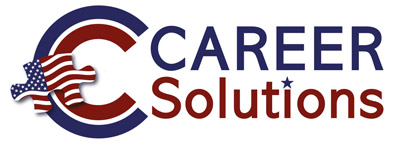Are you among the millions of people who are ready to quit your job during this “Great Resignation” that everybody is talking about?
According to the Bureau of Labor Statistics, nearly 4 million people quit their jobs in April this year. You read that right—nearly 4 million quit, ignited by the belief they can find better work! A trend that is continuing—and causing a pink slip reset. Many people are taking early retirement and many are reprioritizing different things in their life and quitting their jobs.
According to a newly released Prudential survey, about 26% of workers are planning to look for a new job, now as the threat of the pandemic is decreasing…
So, how do you quit your job?
First, be 100% sure it’s the right thing to do and second, it’s the right time to do it.
Ask yourself how you’ll generate income (unless you just won the lotto, or have enough money in savings to last for a while), planning your exit is crucial to your next big move.
Take into consideration, your salary, benefits, any perks you currently have (or don’t have), and really think about what is driving this change.
Here are some do’s and don’ts to ensure a smooth transition…
DO give (at least) two weeks’ notice.
You may be ready to leave… like, yesterday. But I suggest that you give a minimum of two weeks’ notice. Even if your start date for your next job is still more than a month away, make sure you give your current employer ample notice. Three or four is even better.
If you are leaving on your own terms, your employer likely doesn’t have a replacement lined up… and let’s face it, you’re irreplaceable! So it’s likely going to take more than two weeks to find someone else to fill your shoes. Giving ample notice—and maybe even offering to stay long enough to train your replacement—is a solid way to make sure you’re not burning any bridges.
DON’T leave a mess behind you.
Make sure you leave things better than when you found them. Complete whatever you’re working on—if possible. Try to share relevant information with your colleagues (or manager) about projects or cases you’re working on.
Make sure to document any processes that you’ve found to be useful for whoever might be stepping into your role after you (and if not for THEM, for your own professional reputation). Tie up loose ends. And if you can’t, make note of what’s outstanding. All of this is common courtesy, and probably how you would appreciate starting your new job.
DO get a copy of your personnel file.
In all the years I’ve been working in the careers industry, not one of my clients thought to get a copy of their personnel file before they left their job. It’s always a good idea to have a copy of your personnel file. Trust me when I say that it’s much easier to get a copy while you are still an employee then when you’re not. You’ll be glad you did.
DON’T be afraid to ask for a reference.
Before you head out, don’t be shy about asking for a letter of recommendation from your direct supervisor. As time passes, it’s not hard to lose track of your previous jobs and employers. If you can, get a letter of recommendation or a testimonial, or even a LinkedIn recommendation, if you’re on LinkedIn. You’ll have proof of your qualifications, achievements, and personal character to share with future employers.
DO request an exit interview.
This may not be standard protocol for your company or agency—but, if the situation is right for you, request one anyway! You can make the request in writing as part of your letter of resignation. And this doesn’t need to be self-serving. You can use this time to show how grateful you are for the opportunities you had to grow, and you can provide feedback for the person who will be coming after you. Doing an exit interview can also make sure you have a clean break from the agency and enables you to provide insight into the culture. If you’re not sure if you should request an exit interview, or attend one at the organization’s request, check out my blog post on Exit Interviews.
DON’T burn your bridges.
This might go without saying… but just don’t. Don’t burn your bridges. Be kind. Don’t be angry or spiteful or pompous. Be respectful of the company/agency/people that you’re leaving… it’s not easy to fill a vacancy, especially now.
And, you never know when these relationships may serve you in the future! Your next job may not be what you hope and expect it to be, and you may want to come back some day! 😉 It’s a small world and leaving gracefully and politely will contribute to a positive experience—for everyone.
DO connect with your co-workers.
Once you’ve given notice to your direct supervisor, you can let your co-workers know. It may not be top of mind for you, but they’ll want to prepare for the transition, too. They may have questions that they haven’t had a chance to ask regarding outstanding projects, and they’ll appreciate knowing that NOW is the time to talk with you about what will need done in your absence to ensure continuity of business. You may also want to stay in touch with them so ask them if you can stay in touch with them and the best way to do that in both personal and/or professional capacities.
Do you really need to write a letter of resignation when you quit your job?
Yes. It’s the professional thing to do. And, it doesn’t have to be a long-winded synopsis of why you are leaving. You can write a couple of sentences on how grateful you are for the experiences then thank them for the opportunity of working with them personally. You could even mention a special project or a special award you received and the impact it had on you.
There are a lot of ways to ensure you leave professionally and doing it gracefully will be something you’ll be proud of in the long run. You never know when your paths might cross again and when you might need them in your corner.
Are you ready to quit your job?
Yes? Be sure to consider all the options and opportunities–and I recommend that you have another job to go to before you just up and quit. (Again, unless you just won the lotto or Uncle Vinnie left you a ton of money.) So, if you find yourself following in the “Great Resignation,” keep some of these things in mind! But in the end, do what’s best for you and your family, even if that means leaving the job you’re in, and looking for something new. And if you find yourself needing some help in that process, we’re here for you.
Download a resignation letter sample template!
In the meantime, I’d love to know if you are thinking of leaving your job, or what advice you have for leaving a job (do or don’t!)… leave me a comment below! I’d love to hear from you.



